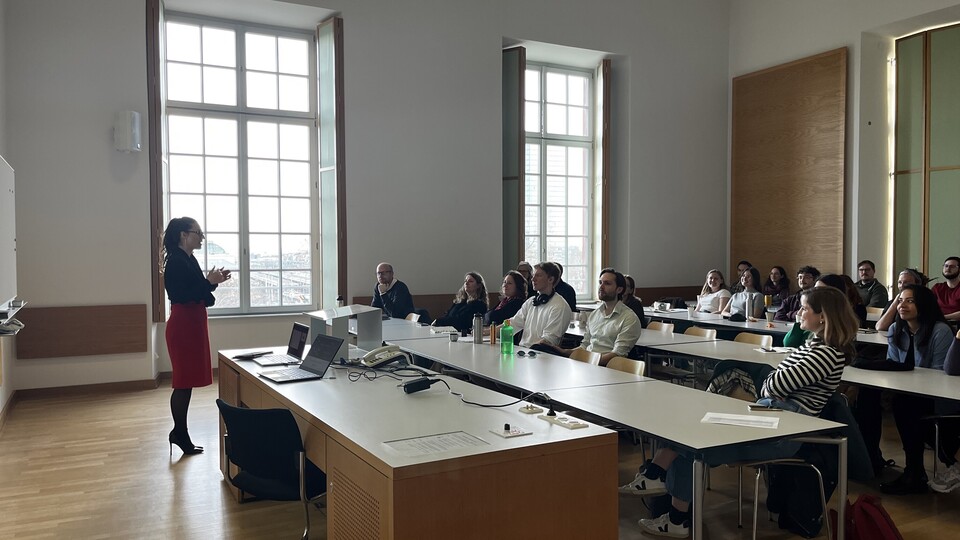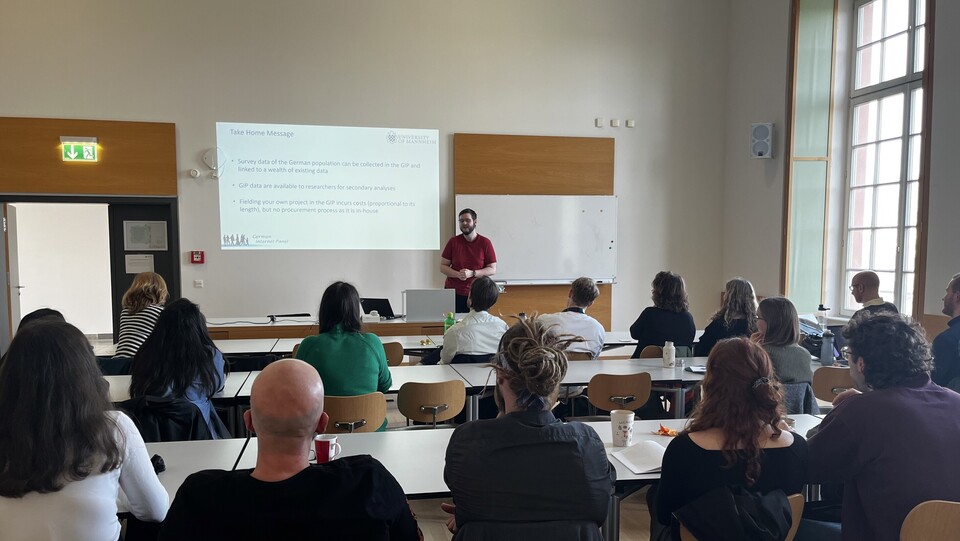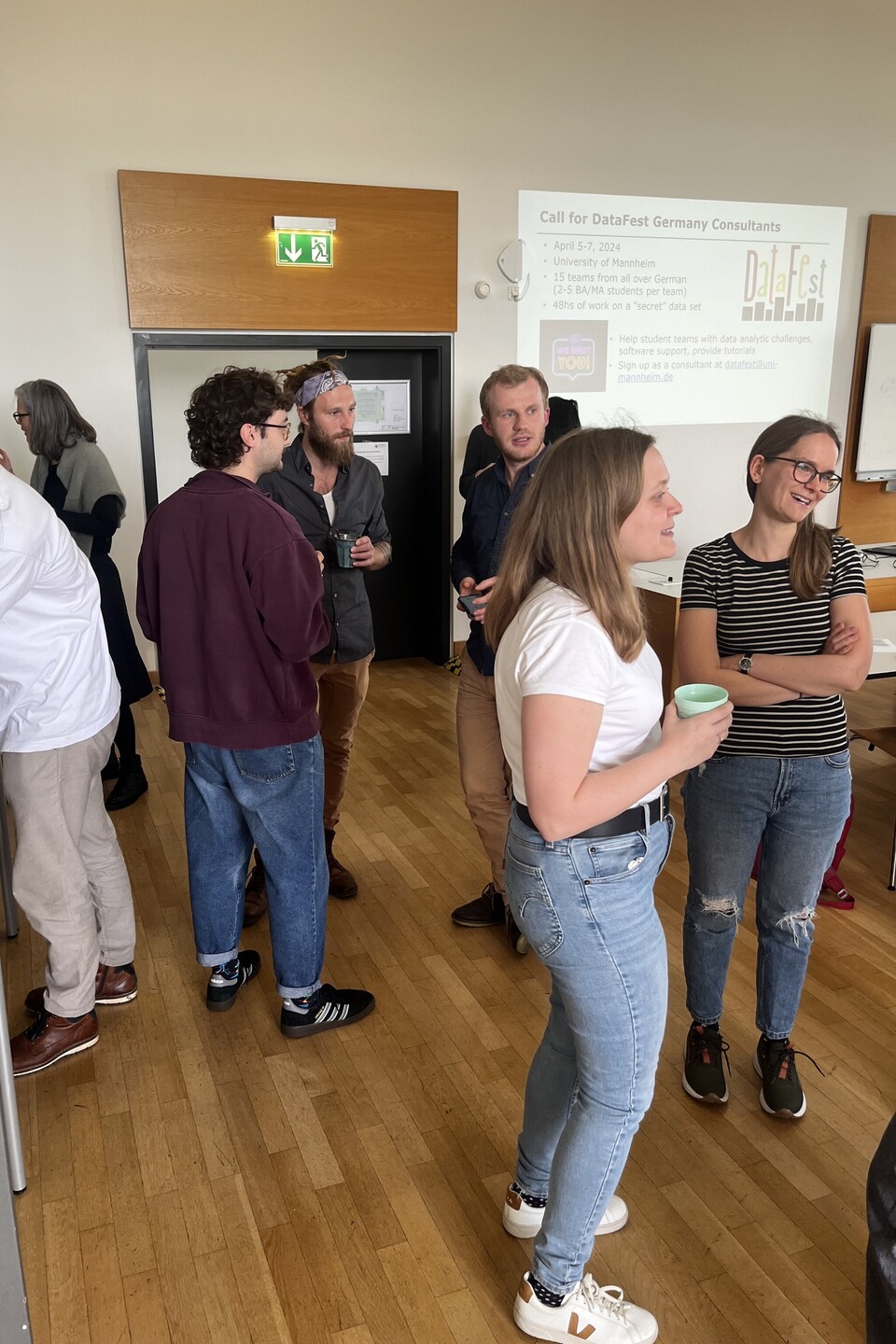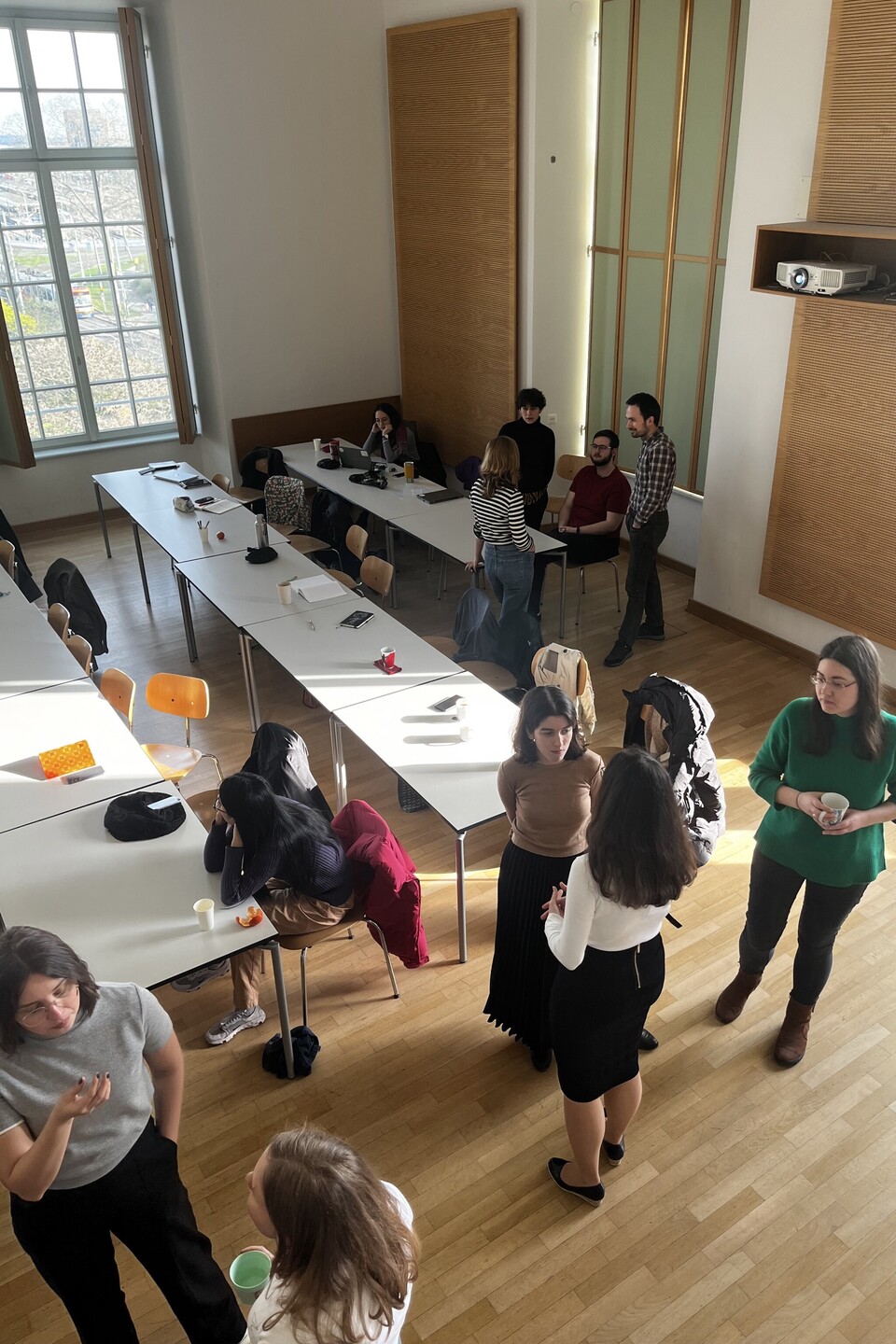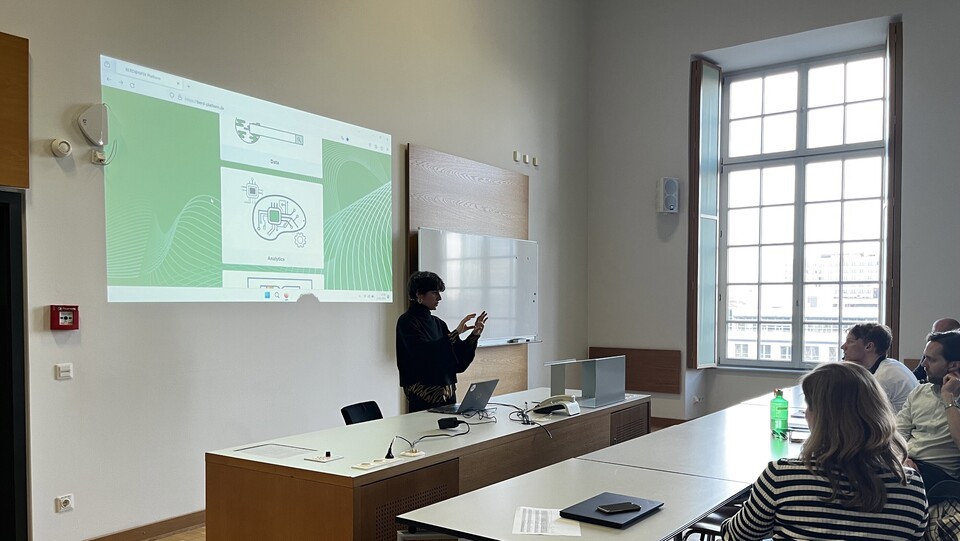What Survey Methodology and Data Science can learn from each other
The fourth Academic Speed Dating event since the coronavirus pandemic took place at Mannheim Palace on 14 March 2024 and attracted over thirty interested people from various schools and departments. Keynote speaker Prof. Florian Keusch opened the event with an entertaining presentation on what survey methodology and data science can learn from each other, focusing in particular on the use of generative AI in data production. He concluded with a clear statement in favor of bilaterality: While survey research can benefit greatly from the new possibilities offered by data science, data science research should also incorporate the decades of experience from survey research with regard to the process of data generation in order to recognize errors in the data and adapt its methods accordingly.
After a lively discussion and a short break, five participants presented their respective work in short contributions of 5 minutes each. Tobias Rettig and Veronica Haas presented two important offers for researchers at the University of Mannheim: The German Internet Panel (GIP), a long-term and large-scale study on individual economic and political attitudes and preferences of the German population; and the new BERD@NFDI Platform, which offers researchers a secure marketplace for business and economic data and controlled data exchange.
Three scientists presented their research projects at very different stages: Giuliana F. Manganaro, a doctoral student at the Graduate School of Economic and Social Sciences (GESS) in the field of marketing, is looking for cooperation with data science experts for her research project – her call was met with great interest. Andreea Iana and Rita Sousa, both from the Data and Website Group of the School of Business Informatics, gave insights into their advanced research on multilingual news and biomedical data.
As always, the event lived up to its networking character, as the participants used the discussions after the presentations and the get-together afterwards for a lively exchange.
